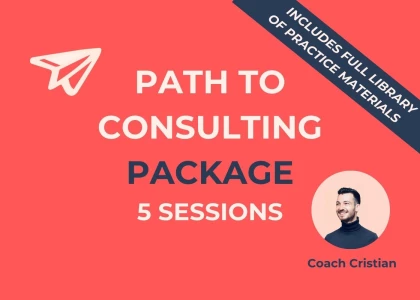Hi All,
I recently joined PrepLounge and its great to be a part of a collaborative community! Over my casing interviews, I have noticed three main problems in my casing:
1) Not super great frameworks – average at best
2) Having an overflow of information when it comes to numbers and sometimes getting lost in the weeds.
3) Some times not taking away the big ideas from chart analysis.
Curious to know if anyone has any thoughts on remedying these issues. Thanks in advance!


















